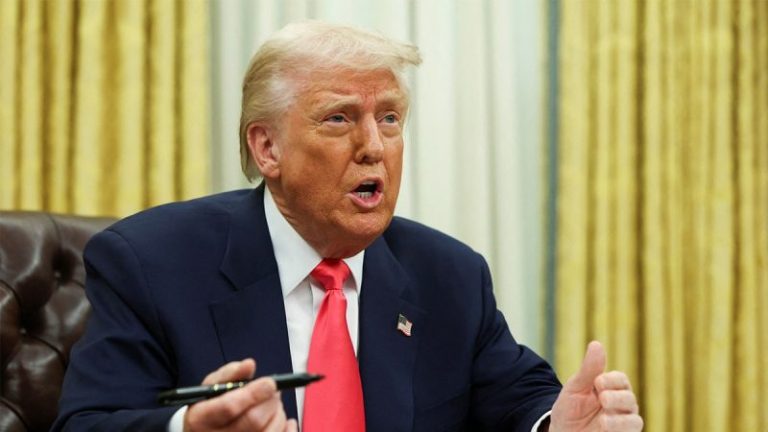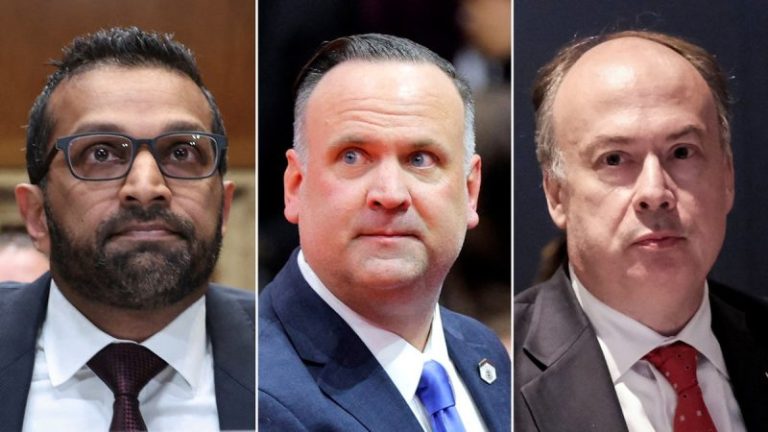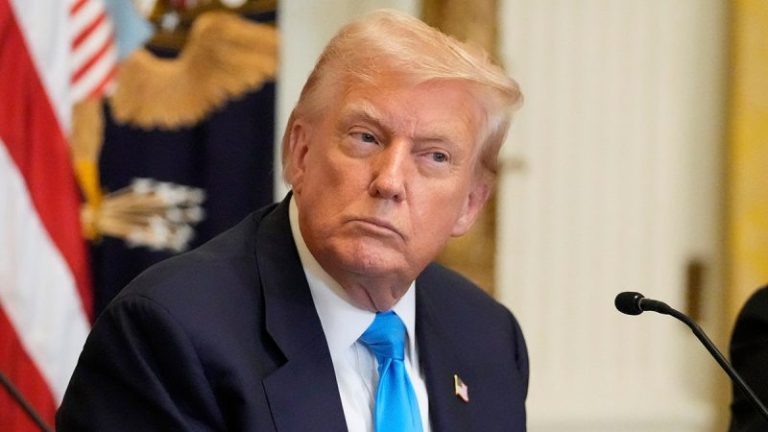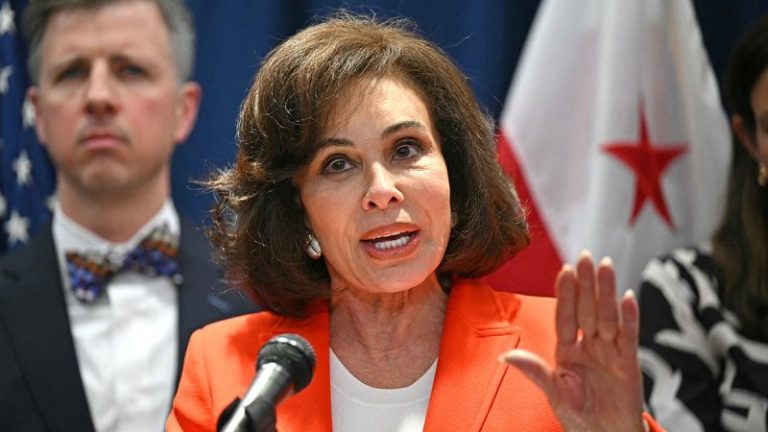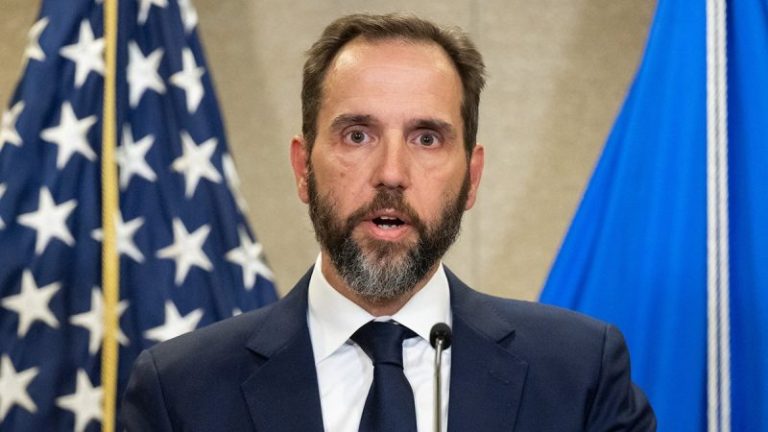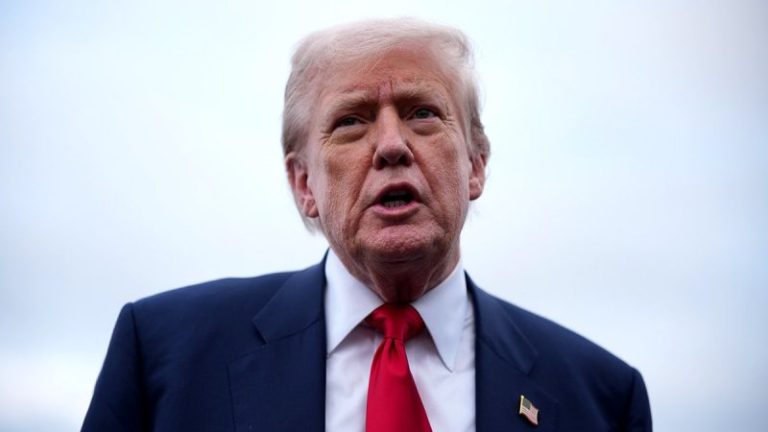Hours of tense negotiations to strike a deal on President Donald Trump’s nominees blew up Saturday night, and now lawmakers are headed home.
Senate Republicans and Democrats were quick to point the finger at one another for the deal’s demise, but it was ultimately Trump who nuked the talks.
In a lengthy post on his social media platform Truth Social, Trump accused Senate Minority Leader Chuck Schumer, D-N.Y., of ‘demanding over One Billion Dollars in order to approve a small number of our highly qualified nominees.’
‘This demand is egregious and unprecedented, and would be embarrassing to the Republican Party if it were accepted. It is political extortion, by any other name,’ Trump said. ‘Tell Schumer, who is under tremendous political pressure from within his own party, the Radical Left Lunatics, to GO TO HELL!’
‘Do not accept the offer,’ he continued. ‘Go home and explain to your constituents what bad people the Democrats are, and what a great job the Republicans are doing, and have done, for our Country. Have a great RECESS and, MAKE AMERICA GREAT AGAIN!!!’
Instead of finding a pathway to vote on as many as 60 of the president’s nominees, all of which moved through committee with bipartisan support, lawmakers rapid-fire voted on seven before leaving Washington until September.
But Schumer treated Trump’s move as a victory for Senate Democrats. He countered that it was the president who gave up on negotiations while he and Senate Majority Leader John Thune, R-S.D., worked to find a bipartisan solution, ‘provided the White House and Senate Republicans met our demands.’
‘He took his ball, he went home, leaving Democrats and Republicans alike wondering what the hell happened,’ Schumer said, standing next to a poster-sized version of the president’s post.
‘Trump’s all-caps Tweet said it all,’ he continued. ‘In a fit of rage, Trump threw in the towel, sent Republicans home, and was unable to do the basic work of negotiating.’
But prior to the president’s edict, both sides of the aisle believed they were on the verge of a breakthrough to both meet Trump’s desire to see his nominees confirmed and leave Washington.
said that there were ‘lots of offers’ made between him and Schumer over the course of negotiations.
‘There were several different times where I think either or both sides maybe thought there was a deal in the end,’ he said.
Senate Democrats wanted the White House to unfreeze billions in National Institute of Health and foreign aid funding, in addition to a future agreement that no more clawback packages would come from the White House.
In exchange, they would greenlight several of Trump’s non-controversial nominees.
Sen. Markwayne Mullin, R-Okla., accused Schumer of going ‘too far’ by upping the price tag on his demands.
‘We’ve had three different deals since last night,’ he said. ‘And every time it’s been, every time it’s ‘I want more,’’ Mullin said of Schumer’s demands.
He said that Republicans weren’t caught off guard by Trump’s call to halt talks, and noted that the White House had been heavily involved in negotiations.
‘You get to a realization that there was, it was never about making a deal,’ he continued. ‘They want to go out and say the President’s being unrealistic, and because he can’t answer to his base to make a deal like we have in every other president in history.’
Now, Republicans won’t pursue recess appointments, but Mullin noted that moving ahead with a rule change to the confirmation process when lawmakers return in September was going to happen in response.
‘The asks evolved on both sides quite a bit over time,’ Thune said. ‘But in the end, we never got to a place where we had both sides agree to lock it in.’
Senate Democrats, on the other hand, countered that their offer never changed, and that Republicans kept increasing the number of nominees they wanted across the line, and attempted to include more controversial, partisan picks.
Schumer wouldn’t reveal the details of his demands, but charged that any changes to Senate rules would be a ‘huge mistake,’ and urged Trump to work with Senate Democrats moving forward, particularly as Congress hurtles toward yet another deadline to fund the government in September.
‘They should stop listening to him,’ Schumer said. ‘If they want to do what’s good for the American people, they shouldn’t be in blind obeisance to Donald Trump.’
This post appeared first on FOX NEWS

